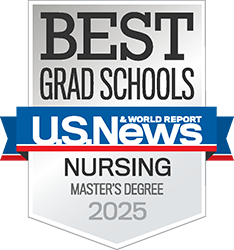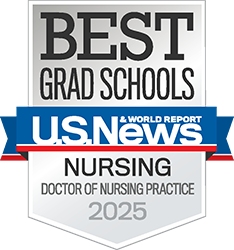Nursing, dentistry faculty collaborate for kids



Two interprofessional research studies aimed at improving children’s health grew out of a joint workshop that brought together faculty from Cizik School of Nursing and the School of Dentistry at UTHealth Houston.
The SOD-CSON Joint Seed Award Program is providing a pair of two-year, $20,000 grants to interprofessional teams collaborating on early stage research programs that will address critically important health problems. One team seeks to identify risk factors and prevent adverse events following in-office sedation of pediatric dental patients, and the other will implement a combination oral health and nutritional literacy program at a school in an underserved neighborhood.
“We are so thrilled for the opportunity to collaborate with the School of Dentistry,” said Professor Constance M. Johnson, PhD, RN, FAAN, the associate dean for research at Cizik School of Nursing. “Interdisciplinary studies such as these awarded to our faculty are critical to not only advance our fundamental understanding of health care issues, but to also solve significant problems in our community.”
“It is a great satisfaction to see the new collaborative teams formed between SOD and CSON faculty and their innovative projects addressing important oral and general health concerns. We hope that this intramural funding opportunity allows the teams to expand their research endeavors for continued success,” said Professor Ariadne Letra, DDS, MS, PhD, interim associate dean for research at the School of Dentistry.
Safer sedation
Assistant Professor Deniz Dishman, PhD, CRNA, was not able to attend the April 9, 2021, event because she was in clinical practice providing anesthesia to patients in an operating room. When she later reviewed a summary from the workshop, a research proposal by Associate Professor Brett Chiquet, DDS, PhD, caught her eye.
Their joint study, titled “Identifying the Incidence of Post-Sedation Adverse Events in Pediatric Dentistry,” presents an ideal vehicle for collaboration between a pediatric dentist and a nurse anesthetist. They will be breaking new ground on a little-studied topic.
Some children may be lethargic, walk with an unsteady gait, or experience poor oxygenation after dental anesthesia. “We don’t know which adverse events are most common, or which patients are most at risk,” Dishman said.
In addition to conducting an in-depth review of relevant literature, the co-principal investigators and their team will look for documented adverse events among 1,500 previous pediatric sedation cases from the School of Dentistry’s Postgraduate Clinic. They will then apply what they learn as they interview parents 24 hours after procedures. The team hopes to identify common medical or physical characteristics among patients who experience adverse events and are particularly interested in exploring whether a relationship exists between post-anesthesia complications and obstructive sleep apnea.
The ultimate goal is to adapt or develop a sensor device for at-risk children to wear after in-office sedation for dental procedures. The sensor would detect problems such as low oxygen levels and alert parents.
“If we can determine which patients are at increased risk for adverse events and prevent them from occurring, our project will be a success,” Chiquet said.
The grant is funded by the School of Dentistry. Other collaborators are Professor Xiaoqian Jiang, PhD, of the UTHealth School of Biomedical Informatics; School of Dentistry Senior Statistician and Quantitative Biologist J. Nathanial Holland, PhD; and Melanie Wright, PhD, an associate professor in the College of Pharmacy at Idaho State University’s Meridian Health Sciences Center.
“Improving oral health… improving overall health”
A collaboration led by co-principal investigators Daphne Hernandez, PhD, MSEd, FAAHB, and Margo Melchor, RDH, MED, EdD, epitomizes the dental school’s vision statement. The pair met during a UTHealth Houston leadership course and later discovered their overlapping research interests at the joint workshop.
Their study, titled “Exploring the feasibility of using interprofessional education to deliver Nourishing Smiles to underserved adolescents in Houston area schools,” will educate nursing and dental hygiene students to deliver a combined oral health and nutrition program, including dental referrals, at local schools.
“As a dental hygienist, when we provide oral hygiene education to our patients, it also includes nutritional counseling,” said Melchor, an associate professor at the School of Dentistry.
The “Nourishing Smiles” project will meld elements of the UTHealth School of Public Health’s Nourish program with the American Dental Association’s Smile Smarts! curriculum, explained Hernandez, an associate professor at Cizik School of Nursing.
“Poor nutrition can lead to oral health problems that then lead to larger health problems,” she said, noting that about a quarter of Black and Hispanic adolescents ages 12-19 from low-income families experience untreated tooth decay. Many lack insurance and access to routine oral or general health care.
The grant will enable the team to develop and deliver a curriculum to a few dozen students at a local school. If the implementation proves successful, they hope to secure additional funding to expand the program to more schools and classrooms.
“The project has the potential to reduce health disparities and to expand workforce capacity to implement evidence-based oral health promotion practices,” they stated in their proposal summary.
The “Nourishing Smiles” grant is funded by Cizik School of Nursing. Additional collaborators are Assistant Professor John Wesley McWhorter, Dr.PH, MS, RD, LD, CSCS, from the School of Public Health, and Associate Professor Maja Djukic, PhD, RN, FAAN; Assistant Professor Allison Edwards, DrPH, MS, CNE; and Postdoctoral Research Fellow Allison N. Marshall, PhD, MSSW, MPH, from Cizik School of Nursing.



